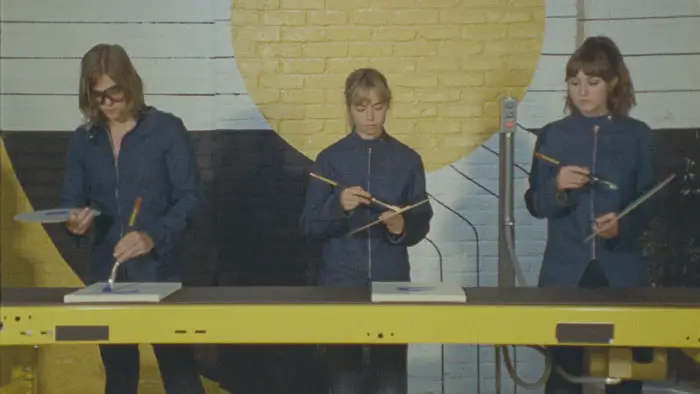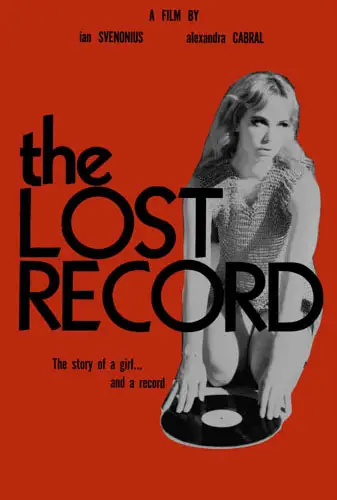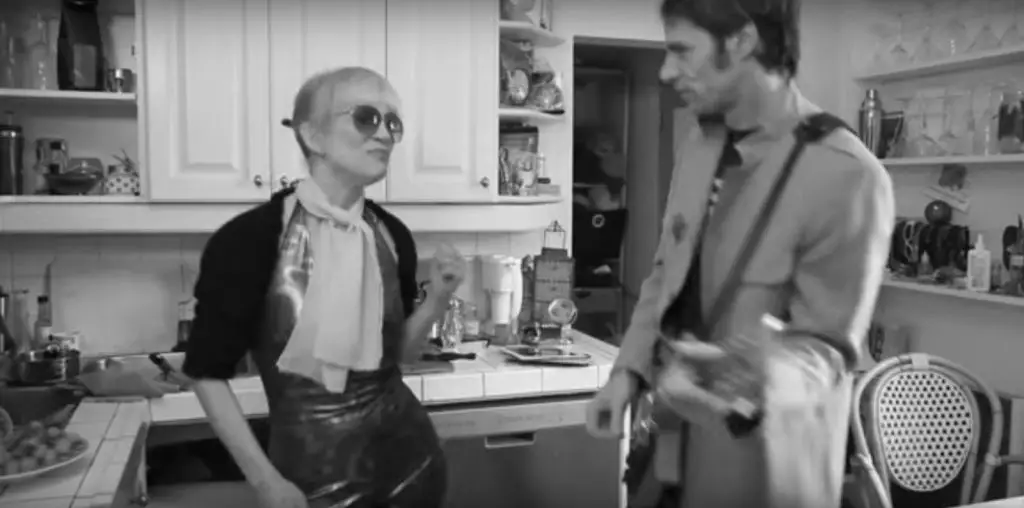
I have been a fan of the music of Ian Svenonius for an amount of time that seems like forever, but probably twenty years. The music from his bands Nation of Ulysses, The Make-Up, Chain And The Gang, and ESCAPE-ISM is all exceptionally meaningful to me. So when I learned that Svenonius was teaming up with Alexandra Cabral to make a film based on their ESCAPE-ISM album, I knew it was something I had to see immediately. The result is The Lost Record, and I’m lucky that I was able to see it during Svenonius and Cabral’s traveling show, wherein they screen the film themselves. It’s like what Crispin Glover did with his It trilogy or hundreds of drive-in B-movie filmmakers of the 1950s and ’60s.
The fantasy musical takes place in an alternate reality where all music except for one record is outlawed. There’s a fiery speech at the beginning from Cole Alexander, dressed as some kind of revolutionary, saying that music is a virus that has humans enslaved. To combat this horror, only one record is allowed to be played anymore. The “Number One Record” constantly plays everywhere, and everyone is obsessed with it. Henry Rollins voices the radio DJ who plays it all day, every day. Of course, it is actually a very catchy song written by ESCAPE-ISM.

“The record and she then begin a relationship.”
A nameless girl (Pauline Jorry), our hero, works as an artist at an art factory where an everpresent voice comes over the loudspeaker to remind the artists that everything they’re doing is for the good of the company. The product they’re selling isn’t the art but the artist as a commodity. Calvin Johnson voices this creepy Orwellian disembodied voice. Her life is changed forever when she finds a record that is not the “Number One Record” at a junk shop. The vinyl was so unwanted that the proprietor gave it away. The girl takes it home and plays it.
The record and she then begin a relationship. The record (Ian Svenonius) is the titular album referenced in The Lost Record. The record says it isn’t lost, so much as unloved. It spends a lot of time trying to convince the girl that she is special because she picked it, but then the record wants to compete with the number one record. The girl plays it for her friends at a party, and everyone loves it. It’s not too long before the girl gets in trouble for trying to disrupt the status quo.

"…a fascinating philosophical discourse about society."


